About
-
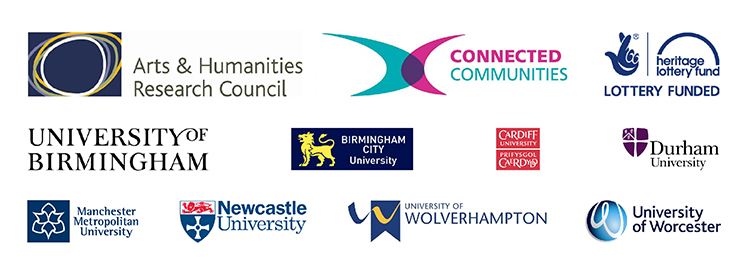
The Project
Voices of War and Peace: the Great War and its Legacy is a First World War Engagement Centre funded by the Arts & Humanities Research Council and in partnership with the Heritage Lottery Fund. The University of Birmingham Centre is a joint initiative across the Midlands with Birmingham City University, University of Wolverhampton and University of Worcester, and further afield with Cardiff University, University of Durham, Manchester Metropolitan University and Newcastle University.
The Engagement Centre is based in the Library of Birmingham and supports a wide range of community engagement activities, connecting academic and public histories of the First World War as part of the commemoration of the War’s centenary.
The Centre covers a broad range of relevant research knowledge that enables it to respond to diverse community interests. This research knowledge ranges from the history of Birmingham, the Black Country and urban and rural Worcestershire to the impact of air power, from the experiences of Belgian refugees to trench warfare, from Quakers and humanitarian relief to battlefield archaeology, and from caring for the casualties of war to the involvement of colonial troops and labour.
Voices of War and Peace: the Great War and its Legacy offers research support and guidance for community groups around the First World War in general and in particular around the following themes:
Belief and the Great War
Childhood
Cities at War
Commemoration
Gender and the Home Front
Peace and ConflictAHRC First World War Engagement Centres
Voices of War and Peace is one of five AHRC First World War Engagement Centres that focuses on providing UK-wide support for community groups funded through a range of HLF funding programmes, particularly its £6m ‘First World War: Then and Now’ community grants scheme.
Gateways to the First World War
University of Kent
gateways@kent.ac.ukEveryday Lives in War: experience and memory of the FWW
University of Hertfordshire
firstworldwar@herts.ac.ukLiving Legacies 1914-18: From past conflict to shared future
Queen’s University Belfast
livinglegacies@qub.ac.uk
Centre for Hidden Histories: Community, Commemoration and the First World War
University of Nottingham
HiddenHistories@nottingham.ac.uk
Arts and Humanities Research Council
Each year the AHRC provides around £98m of funding from the Government to support research and postgraduate study in the arts and humanities. Only applications of the highest quality are funded and the range of research supported by this investment of public funds not only provides social and cultural benefits but also contributes to the economic success of the UK. The World War One Coordinating Centres are funded through a joint initiative between the cross-Council Connected Communities Programme and AHRC’s Care for the Future: Thinking Forward through the Past Theme. For further information on the AHRC go to www.ahrc.ac.uk
The Heritage Lottery Fund
The Heritage Lottery Fund (HLF) sustains and transforms a wide range of heritage through innovative investment in projects with a lasting impact on people and places. As the largest dedicated funder of the UK’s heritage, with around £375million a year to invest in new projects and a considerable body of knowledge, we are also a leading advocate for the value of heritage to modern life. From museums, parks and historic places to archaeology, natural environment and cultural traditions, we invest in every part of our heritage. Since 1994, HLF has supported just over 35,000 projects allocating more than £5.5 billion across the UK.
HLF can provide funding to help groups, communities and organisations mark the Centenary by exploring, conserving and sharing the heritage of the First World War, from memorials, buildings and sites, to photographs, letters and literature. Find out more about HLF grants for First World War Projects.
Principal Investigator
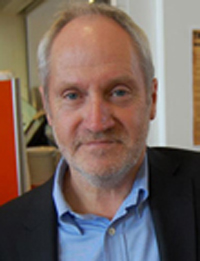 Professor Ian Grosvenor is Professor of Urban Education at the University of Birmingham with responsibility for city and cultural liaison. He was involved in the HLF Connecting Histories project (2005-07), which was praised by the National Archives as a model of community engagement, and held one of the first AHRC Knowledge Transfer Fellowships (2007-09) for Birmingham Stories: from communities of interpretation to communities of understanding. He was co-convenor of Black Pasts, Birmingham Futures between 1999 and 2009 and currently co-convenes the Birmingham Centenary of the FWW Programming Group. He is also Chair of the Library of Birmingham’s Friends of Birmingham Archives and Heritage.
Professor Ian Grosvenor is Professor of Urban Education at the University of Birmingham with responsibility for city and cultural liaison. He was involved in the HLF Connecting Histories project (2005-07), which was praised by the National Archives as a model of community engagement, and held one of the first AHRC Knowledge Transfer Fellowships (2007-09) for Birmingham Stories: from communities of interpretation to communities of understanding. He was co-convenor of Black Pasts, Birmingham Futures between 1999 and 2009 and currently co-convenes the Birmingham Centenary of the FWW Programming Group. He is also Chair of the Library of Birmingham’s Friends of Birmingham Archives and Heritage.Ian will be responsible for overall leadership of the Centre’s activities working in close collaboration with the Co-Investigators and the Co-ordinator and will liaise with other Centres, Connected Communities projects, NCCPE, and the HLF.
Centre Co-ordinator
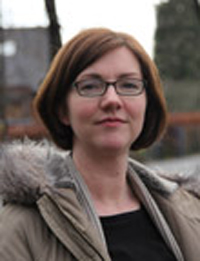 Dr Nicola Gauld is a freelance curator, experienced project outreach worker and early career researcher. She studied History of Art at the University of Aberdeen and attained a PhD in 2006. Since then she has worked on a number of exhibitions and outreach projects, including Children’s Lives (Birmingham Museum & Art Gallery, 2011), Caught in the Crossfire: Artistic responses to conflict, peace and reconciliation (Herbert Art Gallery & Museum, 2013), and Fight for the Right: the Birmingham Suffragettes, a history project supported by the HLF and Library of Birmingham in which students from two local schools explored the suffrage campaign in Birmingham and made a short historical re-enactment film.
Dr Nicola Gauld is a freelance curator, experienced project outreach worker and early career researcher. She studied History of Art at the University of Aberdeen and attained a PhD in 2006. Since then she has worked on a number of exhibitions and outreach projects, including Children’s Lives (Birmingham Museum & Art Gallery, 2011), Caught in the Crossfire: Artistic responses to conflict, peace and reconciliation (Herbert Art Gallery & Museum, 2013), and Fight for the Right: the Birmingham Suffragettes, a history project supported by the HLF and Library of Birmingham in which students from two local schools explored the suffrage campaign in Birmingham and made a short historical re-enactment film.Nicola will be responsible for co-ordinating and delivering, where appropriate, outreach activities, liaising with Co-Investigators and partner organisations, managing the content of the Centre’s website and using social media to increase and encourage participation.
Co-Investigators
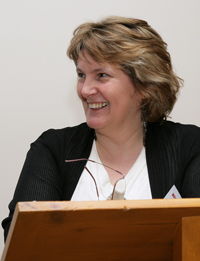 Professor Maggie Andrews is Professor of Cultural History at the University of Worcester who has worked in higher, further and adult education for over 25 years. She is the author of a range of publications including a feminist history of the Women’s Institute movement entitled The Acceptable Face of Feminism (Lawrence and Wishart, 1997), Domesticating the Airwaves: Broadcasting, Domesticity and Femininity (Continuum, 2012) and was the joint editor of Lest We Forget: Remembrance and Commemoration (The History Press, 2011) and Women and the Media: Feminism and Femininity in Britain, 1900 to the Present (Routledge, 2014). Maggie is also acting as an AHRC-funded adviser to the BBC in the West Midlands on its World War One at Home project and as a consultant on the new BBC radio drama set on the Home Front in WW1. She is just completing, with Janis Lomas, an edited collection entitled The Home Front: Images, Myths and Forgotten Experiences to be published by Palgrave Macmillan later this year.
Professor Maggie Andrews is Professor of Cultural History at the University of Worcester who has worked in higher, further and adult education for over 25 years. She is the author of a range of publications including a feminist history of the Women’s Institute movement entitled The Acceptable Face of Feminism (Lawrence and Wishart, 1997), Domesticating the Airwaves: Broadcasting, Domesticity and Femininity (Continuum, 2012) and was the joint editor of Lest We Forget: Remembrance and Commemoration (The History Press, 2011) and Women and the Media: Feminism and Femininity in Britain, 1900 to the Present (Routledge, 2014). Maggie is also acting as an AHRC-funded adviser to the BBC in the West Midlands on its World War One at Home project and as a consultant on the new BBC radio drama set on the Home Front in WW1. She is just completing, with Janis Lomas, an edited collection entitled The Home Front: Images, Myths and Forgotten Experiences to be published by Palgrave Macmillan later this year.Maggie is particularly interested in domesticity and femininity during periods of war and she currently researches, writes and teaches on the Home Front in Britain in World War One and Two. She leads on the Centre’s theme of Gender and the Home Front and her expertise is in the social and cultural history of women in twentieth century Britain.
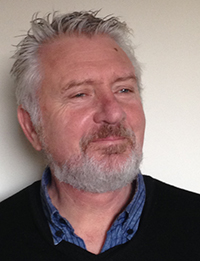 Peter Glasgow was appointed as the Peace Education Officer for the Peace Pledge Union (PPU) in July 2014. The Peace Pledge Union is an anti-militarist organisation. Since 1934 it has campaigned for a warless world, from anti-bombing campaigns during World War 2 to protesting at the remote-controlled drone assassinations and the militarisation of society today. The PPU has developed a range of learning materials, including those relating to Conscientious Objection in World War 1, Pacifism, Genocide, Nonviolence in World War 2 and Remembrance. The PPU is currently campaigning against the increasing militarisation of education and society. The PPU’s website contains a database of information about the people who, refusing to kill, were conscientious objectors in World War 1.
Peter Glasgow was appointed as the Peace Education Officer for the Peace Pledge Union (PPU) in July 2014. The Peace Pledge Union is an anti-militarist organisation. Since 1934 it has campaigned for a warless world, from anti-bombing campaigns during World War 2 to protesting at the remote-controlled drone assassinations and the militarisation of society today. The PPU has developed a range of learning materials, including those relating to Conscientious Objection in World War 1, Pacifism, Genocide, Nonviolence in World War 2 and Remembrance. The PPU is currently campaigning against the increasing militarisation of education and society. The PPU’s website contains a database of information about the people who, refusing to kill, were conscientious objectors in World War 1.Prior to working with the PPU, Peter worked as the Vice Principal, Curriculum, in a large North London College of Further Education and was particularly interested and involved in innovative curriculum development.
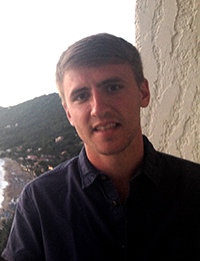 Chris Hill is a research fellow in history, heritage and archives at Birmingham City University. He has research interests in modern British and late imperial history, with a focus on histories of activism, mass media and social movements. His first book, Peace and Power in Cold War Britain, examines relations between radical traditions of liberty and media technologies, particularly as they played out through post-war peace movements and the rise of television. Chris is currently developing articles on aspects of British internationalism after the Second World War. He is also pursuing a project on what Kwame Nkrumah called ‘the new nuclear imperialism’ – the furtherance of British and French nuclear programmes through colonial connections and resources.
Chris Hill is a research fellow in history, heritage and archives at Birmingham City University. He has research interests in modern British and late imperial history, with a focus on histories of activism, mass media and social movements. His first book, Peace and Power in Cold War Britain, examines relations between radical traditions of liberty and media technologies, particularly as they played out through post-war peace movements and the rise of television. Chris is currently developing articles on aspects of British internationalism after the Second World War. He is also pursuing a project on what Kwame Nkrumah called ‘the new nuclear imperialism’ – the furtherance of British and French nuclear programmes through colonial connections and resources.Chris has a keen interest in the role of conscientious objectors and local newspapers in the Great War.
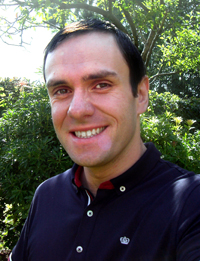 Dr Spencer Jones is a Research Fellow in War Studies at the University of Wolverhampton. His key works include the award nominated From Boer War to World War: Tactical Reform of the British Army 1902 – 1914 (University of Oklahoma Press, 2012) and the edited collection Stemming the Tide: Officers and Leadership in the British Expeditionary Force 1914 (Helion & Co., 2013). In addition he has written numerous chapters and articles on topics related to the history of the British Army. He currently serves as the Regimental Historian for the Royal Regiment of Artillery.
Dr Spencer Jones is a Research Fellow in War Studies at the University of Wolverhampton. His key works include the award nominated From Boer War to World War: Tactical Reform of the British Army 1902 – 1914 (University of Oklahoma Press, 2012) and the edited collection Stemming the Tide: Officers and Leadership in the British Expeditionary Force 1914 (Helion & Co., 2013). In addition he has written numerous chapters and articles on topics related to the history of the British Army. He currently serves as the Regimental Historian for the Royal Regiment of Artillery.Spencer’s specialism within the Centre is the history of the British Army in the First World War. His work in this field is wide ranging, covering command, leadership, morale, motivation, recruitment, training, tactics and battlefield experience.
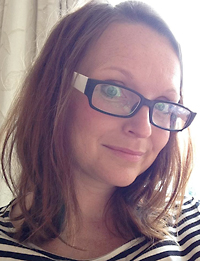 Dr Jenny Kidd is Lecturer in the School of Journalism, Media and Cultural Studies, at Cardiff University. She is a founding member of the Challenging History network and co-editor of Challenging History in the Museum (Ashgate, 2014) and Performing Heritage (MUP, 2011). Jenny has been involved in a number of funded initiatives exploring the commemoration of WW1 including the ‘Significance of the Centenary’ network (with University of Birmingham, University of Sheffield, National Library of Wales and Historic Royal Palaces, funded by AHRC) and the ‘With New Eyes I See’ multimedia documentary initiative (with yello brick, funded by REACT).
Dr Jenny Kidd is Lecturer in the School of Journalism, Media and Cultural Studies, at Cardiff University. She is a founding member of the Challenging History network and co-editor of Challenging History in the Museum (Ashgate, 2014) and Performing Heritage (MUP, 2011). Jenny has been involved in a number of funded initiatives exploring the commemoration of WW1 including the ‘Significance of the Centenary’ network (with University of Birmingham, University of Sheffield, National Library of Wales and Historic Royal Palaces, funded by AHRC) and the ‘With New Eyes I See’ multimedia documentary initiative (with yello brick, funded by REACT).Jenny’s research interests include museums and the creative sector, challenging heritages, digital media, and the varying intersections between these themes.
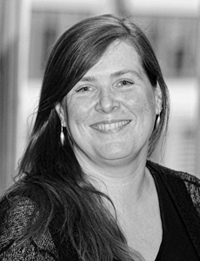 Dr Siân Roberts is Lecturer in the School of Education, at the University of Birmingham. She has worked as an archivist in Birmingham since 1997 and has a wide ranging knowledge of archive collections relating to the First World War, particularly in the Birmingham area. Siân also has extensive experience of supporting community heritage activities and has worked on several local heritage projects including Connecting Histories, Suburban Birmingham and Children’s Lives. During 2014, Siân curated the Library of Birmingham’s Voices of War exhibition and wrote an accompanying book on Birmingham and the First World War, published by The History Press. Siân is also a member of the editorial board of History West Midlands and a member of Birmingham Civic Society’s Heritage Committee.
Dr Siân Roberts is Lecturer in the School of Education, at the University of Birmingham. She has worked as an archivist in Birmingham since 1997 and has a wide ranging knowledge of archive collections relating to the First World War, particularly in the Birmingham area. Siân also has extensive experience of supporting community heritage activities and has worked on several local heritage projects including Connecting Histories, Suburban Birmingham and Children’s Lives. During 2014, Siân curated the Library of Birmingham’s Voices of War exhibition and wrote an accompanying book on Birmingham and the First World War, published by The History Press. Siân is also a member of the editorial board of History West Midlands and a member of Birmingham Civic Society’s Heritage Committee.Siân’s own research focuses on the history of childhood and on women’s history in Birmingham. She is particularly interested in local Quaker women who were involved in refugee relief and international humanitarian aid from 1914-45.
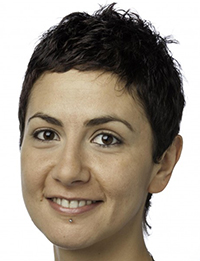 Dr Dima Saber is a Senior Research Fellow at the Birmingham Centre for Media and Cultural Research (Birmingham City University). Her research focuses on media depictions of conflict in the Arab region. She is also responsible for leading and delivering projects in citizen journalism, particularly exploring the relation between digital media literacy and social impact in post-revolution and in conflict settings such as Egypt, Lebanon, Palestine and Syria. Her works include publications on militant videogames and music video productions in the Middle East, and on mainstream media coverage of the Arab-Israeli conflict since 1948 until today. She is currently involved in the mapping of citizen footage that documents the first 18 months of the Syrian uprising.
Dr Dima Saber is a Senior Research Fellow at the Birmingham Centre for Media and Cultural Research (Birmingham City University). Her research focuses on media depictions of conflict in the Arab region. She is also responsible for leading and delivering projects in citizen journalism, particularly exploring the relation between digital media literacy and social impact in post-revolution and in conflict settings such as Egypt, Lebanon, Palestine and Syria. Her works include publications on militant videogames and music video productions in the Middle East, and on mainstream media coverage of the Arab-Israeli conflict since 1948 until today. She is currently involved in the mapping of citizen footage that documents the first 18 months of the Syrian uprising.Dima currently leads BCMCR’s Monitoring & Evaluation Lab (M&E Lab), which speaks to current concerns in co-design, co-creation and collaborative research, through developing quantitative and qualitative methods for the impact assessment of Media, Arts and Design projects.
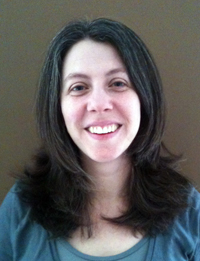 Dr Joanne Sayner is Senior Lecturer in Media, Culture & Heritage Department, at Newcastle University. She is a specialist in memory studies and particularly in the remembrance of challenging histories. She began her academic career with a focus on women’s autobiographical writing about the Nazi past in Germany and has more recently investigated the fraught politics of remembering the former German Democratic Republic and anti-Nazi resistance. She has worked collaboratively with colleagues in other universities and across the museums sector on the role that silence, memory and empathy play in dealing with difficult pasts. Her current project, in conjunction with the Universities of Cardiff and Sheffield, the National Library of Wales, and Historic Royal Palaces, explores the ‘significance of the centenary’.
Dr Joanne Sayner is Senior Lecturer in Media, Culture & Heritage Department, at Newcastle University. She is a specialist in memory studies and particularly in the remembrance of challenging histories. She began her academic career with a focus on women’s autobiographical writing about the Nazi past in Germany and has more recently investigated the fraught politics of remembering the former German Democratic Republic and anti-Nazi resistance. She has worked collaboratively with colleagues in other universities and across the museums sector on the role that silence, memory and empathy play in dealing with difficult pasts. Her current project, in conjunction with the Universities of Cardiff and Sheffield, the National Library of Wales, and Historic Royal Palaces, explores the ‘significance of the centenary’.Joanne’s role in the Centre focuses on the question ‘Whose Commemoration?’ She is responsible for reflecting on what is being remembered and how. She will work with different groups in order to investigate the way individuals, communities and societies negotiate different interpretations of the past.
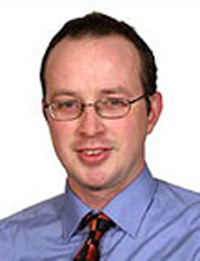 Canon Professor Michael Snape is the Michael Ramsey Professor of Anglican Studies, Department of Theology and Religion, Durham University. He is a historian of Christianity and war in the modern world, focusing primarily on Great Britain, the British Empire, and North America from 1700 to 1950. Michael has published extensively on the subject, including two books shortlisted for the Templer Medal for Military History; God and the British soldier: religion and the British Army in the First and Second World Wars (Routledge, 2005), and The Redcoat and Religion: the forgotten history of the British soldier from the age of Marlborough to the eve of the First World War (Routledge, 2005). He is also a historical consultant for the Royal Army Chaplains’ Department and Secretary of the Church of England Record Society.
Canon Professor Michael Snape is the Michael Ramsey Professor of Anglican Studies, Department of Theology and Religion, Durham University. He is a historian of Christianity and war in the modern world, focusing primarily on Great Britain, the British Empire, and North America from 1700 to 1950. Michael has published extensively on the subject, including two books shortlisted for the Templer Medal for Military History; God and the British soldier: religion and the British Army in the First and Second World Wars (Routledge, 2005), and The Redcoat and Religion: the forgotten history of the British soldier from the age of Marlborough to the eve of the First World War (Routledge, 2005). He is also a historical consultant for the Royal Army Chaplains’ Department and Secretary of the Church of England Record Society.Michael is leading on the Centre’s theme of Belief and the First World War. This theme seeks to recapture the diversity and complexity of the First World War in terms of religious belief, and to help faith communities -nationally and locally- to commemorate their forebears and to help them understand the significance of their experiences for the past and for the present.
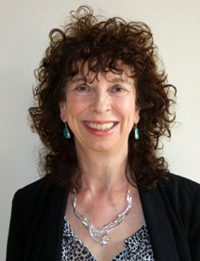 Professor Melanie Tebbutt is Professor of History at Manchester Metropolitan University and Director of the Manchester Centre for Regional History. Melanie has published across a range of themes, including working-class women, communities and cultures, families and social networks, and gender, childhood and leisure. Her publications include Making Ends Meet: Pawnbroking and Working Class Credit (Leicester University Press, 1983) and Women’s Talk? A Social History of Women and Gossip (Ashgate, 1995), and her most recent book, Being Boys: Youth, Leisure and Identity in the Inter-war years (Manchester University Press, 2012). Melanie is Principal Investigator on an AHRC Follow-on Funding project called ‘The Passions of Youth’. This community-based engagement project aims to enhance AHRC-supported research conducted for Being Boys. It focuses on the everyday leisure passions of ‘ordinary’ working-class young men in their teens, and will explore changes and continuities in the leisure passions of working-class boys and young men over the past sixty years, to challenge negative popular stereotypes of their behaviour.
Professor Melanie Tebbutt is Professor of History at Manchester Metropolitan University and Director of the Manchester Centre for Regional History. Melanie has published across a range of themes, including working-class women, communities and cultures, families and social networks, and gender, childhood and leisure. Her publications include Making Ends Meet: Pawnbroking and Working Class Credit (Leicester University Press, 1983) and Women’s Talk? A Social History of Women and Gossip (Ashgate, 1995), and her most recent book, Being Boys: Youth, Leisure and Identity in the Inter-war years (Manchester University Press, 2012). Melanie is Principal Investigator on an AHRC Follow-on Funding project called ‘The Passions of Youth’. This community-based engagement project aims to enhance AHRC-supported research conducted for Being Boys. It focuses on the everyday leisure passions of ‘ordinary’ working-class young men in their teens, and will explore changes and continuities in the leisure passions of working-class boys and young men over the past sixty years, to challenge negative popular stereotypes of their behaviour.Melanie is particularly interested in the war’s impact on families, children and young people and in developing World War One research which has a strong community-based dimension.
Advisory Board
The Voices of War & Peace Advisory Board meets biannually to discuss the Centre’s progress and to offer advice and support on the work that the Centre is doing.Chair:Professor Keri Facer (Professor of Educational & Social Futures, University of Bristol)Members:
Dr Jonathan Boff (Senior Lecturer in Modern History, University of Birmingham)
Nicole Emmenegger (Programme Manager, HistoryPin)
Adrian Gregson (Archival Policy Manager, The Hive Worcester)
Emma Hawthorne (Consultancy Manager, National Trust)
Professor Sarah Lloyd (Director, Centre for Everyday Lives, University of Hertfordshire)
Dr Emma Login (First World War Memorials Programme Manager, Historic England)
Andrew Lovett (Director & Chief Executive, Black County Living Museum)
Laura Milner (Cultural Partnerships Manager, University of Birmingham)
Toby Watley (Director of Collections, Birmingham Museums Trust)
Laura Worsfold (Business Development Manager, The Hive Worcester)Research Network
The research network consists of academics drawn from a variety of disciplines and with direct links to a range of research centres. Collectively they bring both relevant knowledge and experience to enable the centre to effectively support community research. If you are a community group interested in discussing your project with one of the academics in the network then do please get in touch with us at voices@contacts.bham.ac.uk in the first instance and we will facilitate the discussion.
Prof Jo Andrews (Professor of Communication and Management Practice, Birmingham City Business School, BCU)
Jo is the academic representative on the British American Business Council in the Midlands and chairs the Birmingham City International Strategy group for the Americas. This Strategy group focuses upon developing transatlantic projects including engagement with educational and cultural institutions on both sides of the pond.Prof Jim Aulich (Professor of Visual Culture, Manchester School of Art, Manchester Metropolitan University)
Jim’s research interests engage with the relationships between history, memory and representation, especially in the field of propaganda and publicity in the graphic arts.Dr Phylomena Badsey (Visiting Lecturer, Department of History, Politics and War Studies, University of Wolverhampton)
Prof Stephen Badsey (Professor of Conflict Studies, Department of History, Politics and War Studies, University of Wolverhampton)
Stephen is a specialist on military-media issues since the middle 19th century, including the uses of propaganda.Prof David Bebbington (Professor in History, University of Stirling)
David’s research interests include Global Evangelical movement since 1730s; Methodist growth in the 19th century British Isles; Dissenting academies; William Ewart Gladstone.Matthew Blake (Archivist, Staffordshire Archive Service)
Dr Jonathan Boff (Lecturer, Centre for War Studies, Department of History, University of Birmingham)
Jonathan’s current research focuses on the British and German armies and the development of modern warfare, 1914-1945, and on the connection between morale and military effectiveness.Dr Paul Bracey (Senior Lecturer in Teacher Education, University of Northampton)
Paul’s research interests focus on teaching diversity within the history curriculum. He is currently a member of the WW1 Academic School Steering Group.Karin Brown (Shakespeare Institute Librarian, Shakespeare Institute Library, University of Birmingham)
Prof John Buckley (Professor of Military History, Department of History, Politics and War Studies University of Wolverhampton)
John’s research interests focus upon twentieth century military and strategic studies, particularly the Second World War, and the Age of Air Power.Jacqueline Butler (Director of Studies, Media, Manchester School of Art)
Jacqueline’s arts practice evaluates domestic histories and the tangibility of the contemporary photograph and explores themes associated with analogue photography, of loss and melancholia.Dr John Carman (Senior Lecturer in Heritage Valuation, Ironbridge International Institute for Cultural Heritage)
John works particularly in two fields: cultural heritage; and conflict archaeology, especially the archaeology of battlefields.Prof Claire Cochrane (Senior Lecturer in Drama, Institute of Humanities & Creative Arts, University of Worcester)
Claire’s teaching and research interests range widely. She is the author of two books on the Birmingham Repertory Theatre: Shakespeare and the Birmingham Repertory Theatre 1913-1929 and Birmingham Rep: A City’s Theatre 1962-2002, and recently published a chapter titled ‘A City’s Toys: Theatre in Birmingham 1914-1918’ in British Theatre and the Great War 1914-1919: New Perspectives, edited by Andrew Maunder (2014)Dr Dyan Colclough (Associate Lecturer, Department of History, Manchester Metropolitan University)
Dyan’s research interests include theatre history, Victorian cultural studies, childhood, child performers, and oral history.Lucie Connors (Community Curator, The Cardiff Story)
Lucie currently works with community groups to develop temporary ‘City Showcase’ exhibitions.Dr Simon Constantine (Lecturer in Modern European History, Department of History, Politics and War Studies University of Wolverhampton)
Simon’s current research interests include the relationship between language-learning and conquest, both during the Great War, and in Germany’s overseas colonies.Dr Fiona Cosson (Research Associate, Department of History, Manchester Metropolitan University)
Fiona is a social historian with a particular interest in oral history, community history & history of community.Laura Coult (Cultural Partnerships Manager, University of Birmingham)
Jo-Ann Curtis (Curator, Birmingham Museums)
Dr Catherine Danks (Senior Lecturer, Department of History, Manchester Metropolitan University)
Catherine’s teaching and research interests are in the areas of soviet history and contemporary Russian politics.Dr Andrew Davies (Deputy Director of Education, College of Arts and Law, Senior Lecturer in Biblical Interpretation, Department of Theology & Religion, University of Birmingham)
Andrew’s research interests include: contemporary (especially cultural-critical and postmodern literary) approaches to biblical interpretation and hermeneutics; biblical ethics; Pentecostal and Evangelical approaches to the Bible; Religion and Culture.Roger Deeks (PhD student, Centre for War Studies, Department of History, University of Birmingham)
Roger is a historian of the early twentieth century with a particular interest the social history of the British Army. He has strong links to local history in Gloucestershire. He participated as an AHRC funded adviser to the BBC World War One at Home project and contributed to World War One programmes in the BBC Learning Zone and elsewhere. He is closely involved in HLF funded projects about the war, literature and music in Gloucestershire.Prof Steve Dixon (Professor of Contemporary Crafts, Manchester School of Art, Manchester Metropolitan University, Leader of the MIRIAD Crafts Research Grous)
Stephen’s practice-led research explores themes of displacement (Beyond the Seas, AHRC 2006) commemoration (Monopoly, British Ceramics Biennial 2009) and resistance (Restoration Series, V&A 2013). His current touring exhibition Resonance, was developed in collaboration with the Staffordshire Great War museum consortium and the film-maker Johnny Magee. It features an artistic response to the consortium’s collections of First World War artefacts, documents and archives. Collectively, the works look at the ways in which the Great War affected the Staffordshire home front, examining themes of absence, loss, individual heroism and shared humanity, and considers how these themes resonate within the material objects found in the collections.Link to Stephen’s blog on Staffs Great War website: http://www.staffordshiregreatwar.com/blog/resonance-281114/
Dr Sam Edwards (Lecturer, Department of History, Manchester Metropolitan University)
Sam’s work explores the cultural underpinnings to transatlantic relations in the twentieth century, with a particular focus on the ways in which various commemorative and cultural forms have provided forums in which certain ideas (such as the ‘special relationship’) have been actively constructed (rather than just repeated or rehearsed).Paul Fantom (Doctoral Researcher, Department of History, University of Birmingham)
Reverend Dr Kevin Francis (School of Social and Political Sciences, University of Glasgow)
Kevin’s research interests are in the History of Political Thought and in the life and times of liberalism in general.Dr Peter Gray (Senior Research Fellow in Air Power Studies, Centre for War Studies, Department of History, University of Birmingham)
Peter is currently researching various aspects of contemporary and historical air power with particular emphasis on the senior leadership aspects.Dr Betty Hagglund (Project Development Officer, Centre for Postgraduate Quaker Studies, Woodbrooke Quaker Study Centre)
Dr Jane Henderson (Senior Lecturer, School of History, Archaeology and Religion, Cardiff University)
Jane’s research focuses on care of collections, influence techniques, disaster or emergency planning and collections on Wales.Dr Andrew Hignell (Archivist to Glamorgan CCC and Curator of the CC4 Museum of Welsh Cricket, SWALEC Stadium)
Dr Christopher Hill (Research fellow, Birmingham City University)
Chris has research interests in histories of mass media and radicalism and the relationship that has existed and evolved between them in modern Britain. Chris is about to embark on a project entitled ‘Printers and Press Freedom in Britain: from hot metal to computers’.Dr Craig Horner (Lecturer, Department of History, Manchester Metropolitan University)
Craig is currently exploring aspects of society and early motoring in the UK and researching the context of ‘advice’ writers (1900-1910) who encouraged a wider motoring experience before the First World War.Dr Kathryn Hurlock (Senior Lecturer, Department of History, Manchester Metropolitan University)
Kathryn is currently working on a project titled ‘The Returning Soldier’ which examines how the returning soldier, from ancient to modern conflicts, coped with the experience of returning home, and how they were received and perceived by the people and communities they returned to.Prof Peter Jackson (Chair in Global Security (History), School of Humanities, University of Glasgow)
Peter’s research interests include 19th and 20th Century International History, Modern and Contemporary France, Intelligence and Security Studies.Dr John Jewell (Director of Undergraduate Studies, Cardiff School of Journalism, Media and Cultural Studies, Cardiff University)
John’s research and teaching interests include the representation of asylum seekers and refugees in the British media and the history and development of the popular press. He is also interested in propaganda and communication and the role and function of Welsh media.Dr Jagbir Jhutti-Johal (Lecturer in Sikh Studies, Department of Theology & Religion, University of Birmingham)
Jagbir’s main research area is Contemporary Sikhism. This includes: Sikhs and the Law, especially with reference to the impact on identity; Gender Studies and Sikhism focusing on gender inequality and issues such as female feoticide and domestic violence; Sikhism and Science, especially questions about scientific advances in reproductive technologies, cloning and genetic engineering, but also how the body is viewed, especially within Sikhism.Martin Killeen (Senior Librarian, Cadbury Research Library, University of Birmingham)
Prof Sabine Lee (Professor in Modern History, Department of History, University of Birmingham)
Sabine has engaged in studies of children born of war, that is children fathered by foreign soldiers and born to local mothers in conflict and post-conflict situations. She is involved in the international interdisciplinary research network on children born of war and had published several papers on issues such as the human rights of children born of war, specific case studies and historical comparisons of such children throughout the 20th century.Henrietta Lockhart (Collections Officer, Winterbourne House & Gardens)
Dr Emma Login (Independent Researcher)
Emma works in the fields of conflict archaeology and cultural heritage. Her research examines war memorialisation and commemoration as long term processes. Her current research compares commemorative practices in the UK, France and the USA from the mid-19th century through to the present. By moving beyond memorials that are constructed at the time of the conflict Emma hopes to understand the ways memorials are reused and re-appropriated as time passes from their construction.Dr Janis Lomas (Independent Scholar)
Janis has worked as a social and women’s historian at various universities for over 20 years and has been associated with the Women’s History Network since 1992. She recently co-edited, with Prof Maggie Andrews, The Home Front in Britain: Images, Myths & Forgotten Experiences since 1914 (Palgrave, 2014).Prof Paul Long (Professor of Media and Cultural History, Birmingham City University)
Paul is Professor of Media and Cultural History and leads the MA in Creative Industries and Cultural Policy as well as several innovative PhD projects. He is also Director of the Birmingham Centre for Media and Cultural Research.Dr Deborah Longworth (Senior Lecturer, Department of English, University of Birmingham)
Deborah’s research focuses on English literature from 1880-1940, with a specific focus on gender and modernism and the modernist novel.Andy Mabbett (Author and Wikipedian)
Andy is able to offer advice and assistance around: web strategy and project support, from the modest to the massive; Social media and community-building; Open data policy and practice; and partnership working between public bodies and their data consumers; Help with Wikipedia and open-licensed or community-generated content, and QR Code deployment, especially in the Galleries, Libraries, Archives, and Museums sector, particularly to large organisations, start-ups, and voluntary organisations sector.Mark Macleod (Head of The Infirmary, University of Worcester)
Jahan Mahmood (Independent Military Historian)
Jahan specialises in the history of Birmingham’s Afghan-Pakistani communities. He has mentored more than 2,000 young people across the West Midlands region and continues to deliver a wide range of educational programmes tackling radicalisation and gun and gang crime.Dr Nick Mansfield (Senior Research Fellow in History, School of Education and Social Science, University of Central Lancashire)
Nick is a Labour historian, particularly early 20th century farmworkers, publishing widely on patriotic labour in the Great War and post -1918 political allegiances, including ex-servicemen, war memorials and working class conservatism.Prof Jane Martin (Professor of Social History of Education, School of Education, University of Birmingham)
Jane’s research interests are in women’s history. Her publications include Women and the Politics of Schooling in Victorian and Edwardian England, winner of the History of Education Society (UK) Book Prize 2002, and Making Socialists: Mary Bridges Adams and the Fight for Knowledge and Power 1855-1939 (2010).Dr Nicholas Martin (Director of the Institute for German Studies, University of Birmingham)
Nick’s research interests are in modern German intellectual history and in the cultural history of war and political violence in twentieth-century Germany.Steph Mastoris (Head of National Waterfront Museum, Cardiff)
Dr Annemarie McAllister (Senior Lecturer, School of Education and Social Science, University of Central Lancashire)
Annemarie has written on national identity and masculinity in the 19th century but currently works on Temperance History, particularly the Band of Hope.Dave McCormack (Director of Content and Delivery at Made in Cardiff Television)
Yvonne McEwen (Outreach Project Coordinator, Centre for the Study of Modern Conflict, University of Edinburgh, Director of Scotland’s War 1914-1919)
Yvonne’s research interests are in the history of health, medicine and nursing in the Two World Wars. She is also interested in warrior war rituals, and cultures of coping, the history of veterans’ health and welfare issues, and First Nations’ and Metis men and women who served in both World Wars. She is also keenly interested in the history of war corresponding.Dr Paddy McNally (Head of Division of History & Sociology, Institute of Humanities & Creative Arts, University of Worcester)
Paddy’s teaching and research interests are focused on Irish history from 1690 until 1848, German history from 1870 to 1945, and the history of political thought.Dr Alethea Melling (Director of the Centre for Volunteering and Community Leadership, University of Central Lancashire)
Alethea’s has spent over 25 years working with young people in various contexts. She is responsible for the development and delivery of major volunteering and community cohesion project across Lancashire, Cumbria and internationally. Alethea has worked on community cohesion projects in East Lancashire which have been recognised at governmental level as examples of good practice.Alnoor Mitha (Research Fellow (Asian Cultures), Manchester School of Art, Manchester Metropolitan University)
Alnoor is a curator of exhibitions relating to the First World WarIzzy Mohammed (PhD Student, University of Birmingham/Audience Engagement Coordinator, Library of Birmingham)
Dr Marcus Morris (Lecturer, Department of History, Manchester Metropolitan University)
Marcus’s current research explores the interrelationship of European socialists in the years preceding the First World War, especially those who were members of the Second International. He is focusing particularly on Anglo-German relations within the International, attitudes to the military matters and the arms race, collective calls for peace and the subsequent change in attitudes as war broke out.Dr Sara Moseley (Development Director, Distinguished Visiting Fellow, Centre for Community Journalism, Cardiff University)
A key aspect of the Community Journalism Centre will be developing research into the current state and new directions for local journalism in Wales and drawing broader conclusions from this. In this context, Sara is also interested in the application of digital media to enable community journalism and engagement through the medium of Welsh.Clare Mullett (University Curator, Research and Cultural Collections, University of Birmingham)
Dr Kevin Myers (Senior Lecturer, School of Education, University of Birmingham)
Kevin’s research interests include: History of education; History/sociology of childhood; History and heritage.Dr Saima Nasar (Teaching Fellow, Department of History, University of Birmingham)
Saima’s thesis, Subjects, Citizens and Refugees: the making and re-making of Britain’s East African Asians, examines the historical trajectories of African Asian migration alongside changing notions of ‘race’, identity, citizenship and belonging.Dr Helen Nicholson (Senior Lecturer, Department of English, Manchester Metropolitan University)
Helen’s main research interests are in the field of theatre, performance and performativity. She specialises in the performance of the law and law as a performative spectacle, something which has grown from her work on Georgina Weldon (1837-1914).Dr Elizabeth Nolan (Senior Lecturer, Department of English, Manchester Metropolitan University)
Elizabeth’s main research interests are in late-19th and early-20th century American literature. Her specific focus is American women’s writing of this period, in particular the work of Edith Wharton, Charlotte Perkins Gilman and Kate Chopin. Dr Nolan has a particular interest in women’s magazine culture and the writings produced by women in response to the First World War.Dr Jennifer Novotny (Research Assistant (History), University of Glasgow)
Jennifer is a researcher for Glasgow University’s Great War, led by Dr Tony Pollard, which marks the First World War centenary by examining the experiences of the university community during 1914-18.Dr Máirtín Ó Catháin (Lecturer in History, School of Education and Social Science, University of Central Lancashire)
Máirtín’s research interests are quite eclectic, however they generally focus on three distinct but inter-related areas: the political history of the Irish in Scotland from the mid-19th to the mid-20th century, the history of the Fenian movement, and of the wider Irish diaspora. He is also interested in Irish labour and oral history.Dr Lesley Orr (Fellowship of Reconciliation Scotland Development Worker)
Victoria Osborne (Honorary Research Fellow, University of Birmingham/Curator, Birmingham Museums)
Louise Page (Lecturer, Creative Writing in the School of Arts and Media, University of Salford)
Prof Stephen Parker (Professor of the History of Religion and Education, Institute of Education, University of Worcester)
Stephen has particular expertise in the histories of both religion and education and their interface, particularly across the 20th century. He is specifically interested in the role of churches/religion in times of war and has recently authored God and War and ‘Blessed are the Pacifists’: E. W. Barnes of Birmingham and Pacifism, 1914–45 (Midlands History, Autumn 2009).Prof Michael Paris (Emeritus Professor in History, School of Education and Social Science, University of Central Lancashire)
Michael is a specialist in war and popular culture of the 20th century.Dr John Peters (Head of Academic Practice, Newman University)
John’s current research interests include student engagement and partnership, appreciative inquiry, collaborative educational development and personal development planning. John is also the co-editor of a book on Worcestershire Voices of the Great War.Dr Ray Physick (Lecturer, University of Central Lancashire)
Ray’s research areas include sports history, sport and culture, sport and politics.Dr Tony Pollard (Senior Lecturer in History/Battlefield Archaeology, University of Glasgow)
Tony’s interests range from 18th century warfare, particularly in relation to the Jacobite rebellions in Scotland, to the archaeology of the First and Second World Wars. On behalf of the Australian Army he directed the programmes of survey and evaluation which brought to light the WWI mass graves of Australian and British troops at Fromelles in France and other recent projects directed by Tony include the excavation of a First World War dug out near Ypres.Moira Rankin (Senior Archivist, University of Glasgow)
Prof Jonathan Reinarz (Professor of the History of Medicine, Director, History of Medicine Unit, MESH (Medicine, Ethics, Society & History), University of Birmingham)
Jonathan’s areas of research include the history of hospitals, medical education and medical specialisation, including paediatrics and dermatology. He also continues to undertake research on the social and economic history of England 1750-1950, with a particular interest in the Midlands, the brewing industry, including labour, science and advertising in the drinks trades, as well as the history of technology, including refrigeration.Non Richards (Learning Campaigns Manager, BBC Wales)
Andrew Richardson (Executive Assistant to Chief Operating Officer, Cardiff University)
Andrew is coordinating First World War activities and is interested in the social, cultural and political history of Wales.Lesley Richmond (Director of University Archives, University of Glasgow)
Prof David Roberts (Dean of Faculty of Performance, Media and English, BCU)
Dr Richenda Roberts (Department of Art History, Film and Visual Studies, University of Birmingham)
Richenda’s research interests lie in examining visual culture representing concepts of gender and belief systems prevalent in Britain during the First World War, particularly pacifism and spiritualism. In addition to teaching in the Department of Art History, Film and Visual Studies at the University of Birmingham, she has also worked recently as curator and adviser for two exhibitions commemorating the centenary of the First World War – Rebel Visions: The War Art of C.R.W. Nevinson, Barber Institute of Fine Arts, the University of Birmingham, and the forthcoming Evelyn De Morgan Artist of Peace to be held at Blackwell House, Bowness, opening on 24 April 2015.Reverend Dr Leah Robinson (Ministry and Professional Development Coordinator, School of Critical Studies, University of Glasgow)
Leah’s current research is on theological understandings of reconciliation in divided societies, specifically those who are dealing with intra-national conflict.Prof Mike Robinson (Professor of Cultural Heritage, Director of Ironbridge International Institute for Cultural Heritage)
Mike’s interests lie in how we produce and consume categories of heritage within changing cultural and cross-cultural contexts. He is particularly interested in how tourists experience the past and how tourism works with heritage to shape identities at the individual and collective level.Victoria Rogers (Museum Manager, The Cardiff Story Museum)
Dr Alison Ronan (Lecturer, Department of History, Politics and Philosophy, Manchester Metropolitan University)
Alison is a feminist historian and is interested in the history of dissent and resistance in the early twentieth century and the history of women peace activists in WW1, thereby uncovering remarkable stories of what appear to be ‘ordinary’ unremarkable women.Dr Dima Saber (Senior Researcher/Lecturer in Media for Social Change in the Middle East, Birmingham School of Media, Birmingham City University)
Dima’s work has embraced the historical analysis of key broadcast and press media along with the new media, and a strong commitment to media literacy and new technology in education. Much of her work over the last few years has revolved around open educational resources (OER) and creative ways to enhance media and digital literacy in teaching, learning, and research.Prof Gary Sheffield (Professor of War Studies, Department of History, Politics and War Studies, University of Wolverhampton)
Gary’s research interests include: Britain in the era of total war, 1900-1945; military history since 1792.Rachel Silverson (Curator, The Firing Line Museum of the Welsh Soldier, Cardiff Castle)
Dr Joanna Skelt (Research Associate in Community/Participatory Arts, Representing Communities Hodge Hill, University of Birmingham)
Jo’s work focuses on collecting the views and stories of local residents as the basis for creative outputs, (re)presenting the Pakistani’s community’s multiple ways of living in inner-city Birmingham, exploring the relationship between place, ethnicity and well-being.Dr Bob Snape (Reader in Leisure and Sport, University of Bolton)
Bob is founder and Head of the Centre for Worktown Studies at the University of Bolton. He has published widely in the social and cultural history of leisure. More recently he has been actively involved with the Humphrey Spender Worktown archive and the history of Mass Observation.Dr Mia Spiro (Lecturer in Jewish Studies, School of Critical Studies, University of Glasgow)
Mia’s current research, entitled Modern Monsters: Golems, Vampires and the Ghosts of War examines how elements of the supernatural and “border-crossing” figures have been used by modern Jewish writers and artists to grapple with oppression, migration, and antisemitism in the first half of the 20th century.Dr Scott Spurlock (Lecturer in Religious Studies, School of Critical Studies, University of Glasgow)
Scott is currently working on projects relating to Scottish religious traditions and cultures: Catholic, Episcopalian, Presbyterian, Dissenting and Quaker; the experience of lay Catholics in early modern Scotland; and the role of reformed theology in shaping early modern cultures.Dr Philip Stone (Senior Lecturer in Tourism, School of Sport, Tourism and the Outdoors, University of Central Lancashire)
Philip’s current research interests revolve around the concept of dark tourism, the act of travel and visitation to sites, attractions and exhibitions which has real or recreated death, suffering or the seemingly macabre as a main theme.Kaye Tew (Widening Participation and Schools Outreach Coordinator, Manchester Metropolitan University)
Andrew Thornton (Honorary Research Fellow, University of Birmingham)
Andrew’s research interest is in the experiences and careers of soldiers from Staffordshire, Birmingham and the Black Country.Darren Tierney (Affiliate Researcher, History, University of Glasgow)
Dr Laura Ugolini (Reader in History, Department of History, Politics and War Studies University of Wolverhampton)
Laura’s research interests are in gender history, particularly late 19th and early 20th century masculinities and male identities.Dr Sian Vaughan (Senior Research Fellow and Keeper of Archives, Birmingham Institute of Art and Design, Birmingham City University)
Sian’s research interests fall into two main areas concerning the interpretation and mediation of engagement with contemporary art – public art and the archive.Dr Nicola Verdon (Reader in Modern British History, Department of Humanities, Sheffield Hallam University
Nicola is a British historian, focusing on the 19th and 20th centuries. Her research centres on the social and economic history of the countryside and she has published widely on employment patterns, female and child labour, farm and rural households.Dr Keith Vernon (Principal Lecturer in History, School of Education and Social Science, University of Central Lancashire)
Keith’s main focus is continuing work on the history of higher education in Britain in the late 19th and early 20th centuries, looking especially at the development of the civic universities and their relationships with their local communities, and the emergence of research in the University.James Vilares (Community Engagement Officer, Cardiff University)
Dr Kate Vigurs (AHRC Legacies of War Project Officer, School of Modern Languages and Culture, University of Leeds)
Kate is the Project Officer for Legacies of War at the University of Leeds and a BBC/AHRC Post Doctoral Researcher for ‘World War One at Home’. Her research interests include munitions, women’s roles including war-work, nursing, pioneering reconstructive surgery, women’s remount section and training of horses for use at the front, women’s peace movement, Home-front and civilian experience in the North, bombardment of the East coast in 1914, women and sport during the First World War and women in intelligence and espionage.Jenni Waugh (Museums & Community Heritage Consultant)
Jenni is currently co-ordinating WW1 in the Vale, a project initiated by Prof Maggie Andrews in order to develop active research and creative partnerships between the University of Worcester and the communities in the county it serves.Prof Jean Webb (Professor of International Children’s Literature, Institute of Humanities & Creative Arts, University of Worcester)
Jean is Director of the International Forum for Research in Children’s Literature which provides a focus for literary, cultural and socio-historical scholarly enquiry into writing for children, internationally. Jean is convening ‘Creating Childhoods’ the 22nd Biennial Congress of IRSCL to be held at the University of Worcester, August 8th-12th, 2015. http://www.worcester.ac.uk/discover/irscl-22nd-biennial-congress-august-2015.htmlDr Nick Webber (Senior Researcher and Research Developer, Birmingham School of Media, Birmingham City University)
Nick’s research investigates the relationship between technology and culture, focusing in particular on online game communities, history and the music industries. He recently co-published an article with Prof Paul Long, ‘The last post: British press representations of veterans of the Great War‘ (Media, War & Conflict, December 2014).Robert Wenley (Head of Collections & Learning, Barber Institute of Fine Arts, University of Birmingham)
Exhibition supervisor, “Rebel Visions: The War Art of CRW Nevinson”, Barber Institute of Fine Arts, University of Birmingham, 24 October 2014 – 25 January 2015.Dr Jonathan Westaway (Research Fellow, School of Education and Social Science, University of Central Lancashire)
Jonathan’s research links his interests in liberalism, modernity, masculinity, physical culture, education, landscape and technology in the late 19th century and early 20th century. Changing notions of masculinity, human agency, body management and physical cultivation amongst mountaineers, climbers and ramblers, particularly in response to the challenges that the Anglo-Boer War and that the Great War presented to notions of Imperial masculinity, form the subject of his research.Dr Dan Whittingham (Lecturer in War Studies, Centre for War Studies, Department of History, University of Birmingham)
Dan is interested in all aspects of the conduct of war, with a particular focus on British military history, military thought and strategy.Dr Oliver Wilkinson (Associate Lecturer, Department of History, Manchester Metropolitan University)
Oliver’s research focuses on the social and cultural history of modern warfare with specific attention paid to the experiences of captured British servicemen during the First World War. He has also worked on First World War research with a school in the North West. He is currently preparing a monograph on the experiences of British POWs in Germany (1914-19). His main research interests include prisoners of war; civilian internment; the culture of the British army/society; war, memory and memorialisation; First World War ephemera; and the agent in history.Dr Isabel Wollaston (Senior Lecturer in Jewish and Holocaust Studies, Department of Theology and Religion, University of Birmingham)
Isabel’s main teaching and research interests, and the majority of her publications, relate to the Holocaust and contemporary Jewish-Christian relations (post 1945).Sue Worrall (Director of Special Collections, Cadbury Research Library, University of Birmingham)
Dr David Wyatt (Senior Lecturer in Early Medieval History, Community and Engagement, School of History, Archaeology and Religion, Cardiff University)
David is community engagement coordinator for the School of History, Archaeology and Religion.David Zell (PhD student, Institute of German Studies, University of Birmingham)
David’s PhD thesis explores how state-sponsored commemorations of major German cultural figures shaped cultural and political memory in the GDR. The research investigates the bicentenaries of Schiller and Beethoven, and quincentenaries of Dürer and Luther as four comparable case studies spanning a 24 year timeframe, and stretching across different strands of German cultural heritage.International Correspondents
Prof Dr Eckhardt Fuchs (Deputy Director, Georg Eckert Institute for International Textbook Research)
Dr Frederik Herman (Research Associate, Luxembourg Centre for Contemporary & Digital History, University of Luxembourg)
Prof Andrew May (Professor, School of Historical & Philosophical Studies, University of Melbourne)
Prof Julie McLeod (Professor in Curriculum, Equity & Social Change, Melbourne Graduate School of Education, University of Melbourne)
Prof Dr Karin Priem (Associate Professor in Educational Sciences, University of Luxembourg)
Prof Kate Rousmaniere (Associate Professor and Chair in the Department of Educational Leadership, Miami University, Ohio)
Prof Noah Sobe (Professor of Cultural & Educational Policy Studies, Loyola University Chicago)
Prof Angelo Van Gorp (Professor of History of Education, Ghent University)
Dr Pieter Verstraete (Head of History of Education, University of Leuven)
Jolien De Vuyst (PhD student, Ghent University)
-
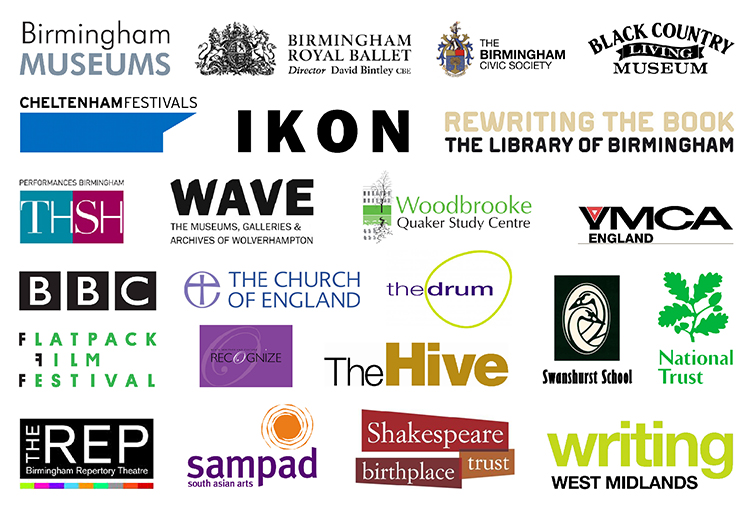 University of Birmingham
University of BirminghamPartner Web Links
Manchester Metropolitan University
Town Hall & Symphony Hall, Birmingham
WAVE: The Museums, Galleries & Archives of Wolverhampton
Woodbrooke Quaker Study Centre
Firing Line Cardiff Castle Mueum of the Welsh Soldier


